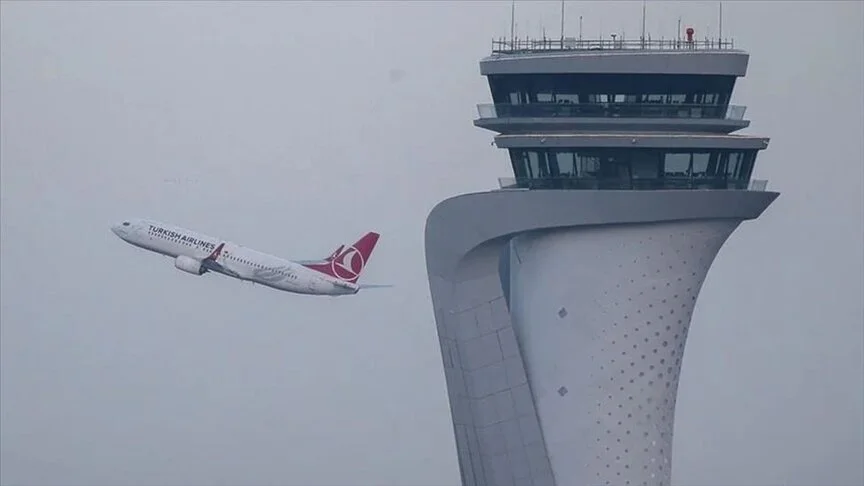

By Anadolu Agency
BERLIN
Türkiye’s aviation sector is growing with the investments made in the field after its rapid recovery post-pandemic.
Investments have enabled Türkiye to become a dominant player in the European market.
Türkiye’s position as an aviation hub for European, Middle Eastern, North African, and the Caucasus markets contributed to the development of the sector.
Last year, global international passenger capacity fell 12% behind the pandemic year of 2019, and Turkish Airlines, on the other hand, continued to be one of the leading airlines in the sector with a 27% increase for the same period, according to data from the International Air Transport Association (IATA) compiled by Anadolu.
Istanbul Airport becomes leader in Europe
Upon investments made in Türkiye’s aviation infrastructure, Istanbul Airport has become the airport with the most flights in all of Europe.
Istanbul Airport ranked first among the busiest airports in Europe last year, as it did in 2022, according to data from Eurocontrol.
The average number of daily flights at Istanbul Airport in 2023 increased 19% year-on-year, reaching 1,375.
Istanbul Airport also broke the airport network record with 1,684 flights on June 22, 2023.
Istanbul Airport was followed by Amsterdam Airport Schiphol with an average of 1,255 daily flights, Heathrow Airport in London with 1,251 flights, Paris Charles de Gaulle Airport with 1,247 flights, and Frankfurt Airport with 1,179 flights.
Istanbul Airport hosted 17.6 million passengers in the first three months of this year, 3.5 million of which were domestic flights and 14.1 million of which were international flights.
The airport saw 16.2 million passengers last year.
Türkiye’s flag carrier airlines fly millions
Turkish Airlines and Pegasus Airlines hosted 115 million passengers in total last year, up 10% year-on-year.
Turkish Airlines reached an all-time record 83.4 million passengers last year, despite global geopolitical tensions and macroeconomic uncertainties, thanks to its extensive flight network and highly qualified workforce during the pandemic period.
The airline’s domestic passenger capacity hiked 23.5% last year compared to 2022, while the number of passengers soared 19% to over 30 million.
As for the international capacity, it climbed 16% and the number of passengers increased 14% to 53 million.
The increase in the number of passengers abroad, especially in European countries with Turkish diaspora, exceeded 20%.
Turkish Airlines Cargo becomes world’s 4th largest air cargo carrier
Turkish Airlines Cargo has more than tripled its market share in cargo transportation in the last 10 years and continued its success as the world’s fourth largest air cargo carrier in 2023 according to IATA data, offering air cargo services at 364 destinations in 133 countries with four cargo and 416 passenger aircraft.
Turkish Airlines currently aims to have a fleet of more than 800 aircraft in 2033.
The airline added 46 aircraft to its fleet last year and increased the number of aircraft to 440, up 12%, despite the supply problems in the global aviation industry and the bottleneck in production.
Turkish Airlines hosts 18.5 million passengers in 3-month period
Turkish Airlines’ passenger numbers climbed from 17 million in the first quarter of 2023 to 18.5 million in the same period this year.
The number of transit passengers hiked from 6.9 million in January-March 2023 to 7.6 million in the same period in 2024.
As for Pegasus Airlines, its number of passengers reached 31.98 million last year, up 19% year-on-year.
Meanwhile, the occupancy of the airlines increased by 1.1 points in 2023 on an annual basis, reaching 84.8%.
The number of domestic passengers using Pegasus Airlines soared by 10% to 11.98 million and international passengers by 24% to 19.95 million.
We use cookies on our website to give you a better experience, improve performance, and for analytics. For more information, please see our Cookie Policy By clicking “Accept” you agree to our use of cookies.
Read More